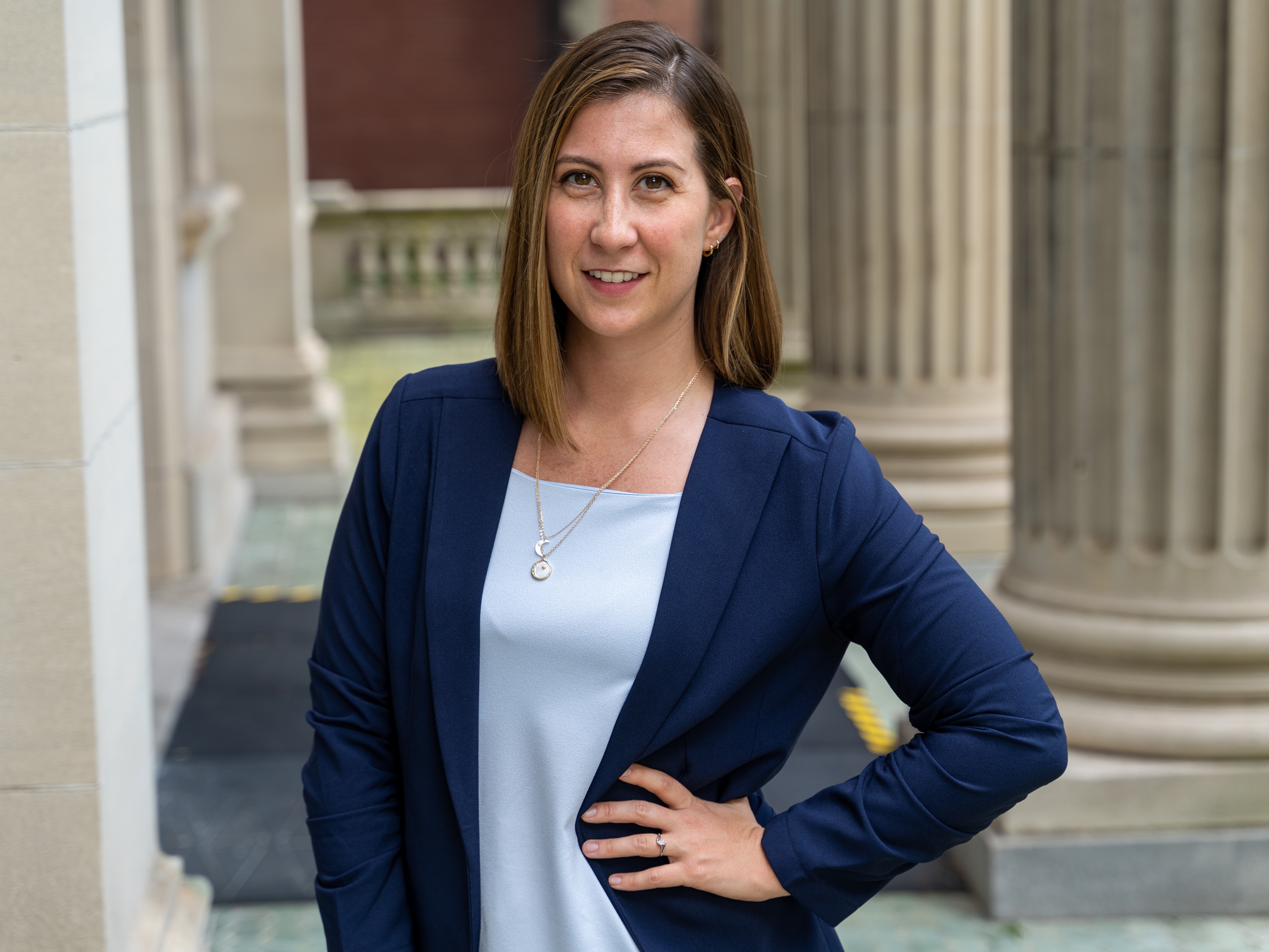Allyson Kennedy, Ph.D. named one of VCU Alumni's 10 Under 10
Oct. 25, 2022

Allyson Kennedy started her VCU master’s in biology in 2010 with a keen interest in scientific research — but with less understanding of how she could turn that interest into a viable career. That quickly changed, however: “Once I got into the program and fell in love with it, I grew to appreciate how graduate school could open so many doors,” she says.
Thanks to the professors who supported her throughout her master’s in biology and subsequent Ph.D. in Integrative Life Sciences, her path emerged. “Through supportive mentors, engaging courses, community outreach opportunities and the autonomy to explore challenging scientific questions in the lab, I learned how to channel my interests and skills into a career,” Kennedy says.
Kennedy developed a passion to expand access to STEM education while working with Amanda Dickinson, Ph.D., associate professor of biology. “She allowed me to explore education and outreach and community-based [projects] in addition to the scientific research that I was doing in her lab,” Kennedy says. “That helped shape what I wanted to do with my life … and learn more about the things I care most deeply about.”
Her passion blossomed when she took a sabbatical in 2014 to teach English in Thailand. She was curious to see more of the world outside of her native Richmond, Virginia. Being there deepened her commitment to education access, she says, and continues to inspire her. She recently returned to Thailand as an Embassy Science Fellow, working with the Thai government and U.S. Embassy to address key issues around STEM education and promote science diplomacy.
Kennedy now works at the National Science Foundation, a federal agency that supports science research and education. She began as an AAAS Science and Technology Policy Fellow in 2017, and became a program director in 2019.
In her current role, Kennedy manages a portfolio of more than 50 awards that support educators from K-12 and university settings as they develop inclusive computer science initiatives in their schools, thereby enhancing access to STEM education.
Over the years, Kennedy has grown more focused on inequities in science education, particularly computer science. She works to foster diversity and inclusion in the field so that all students have the opportunity to become innovators of new technologies that can help address some of society’s biggest challenges.
“As policies and practices that impact issues of social justice — like policing, education, housing, and data privacy — become increasingly reliant on new technologies like artificial intelligence, it is imperative that the designers of these technologies reflect the diversity of this country’s citizens,” Kennedy says. “We need to prepare every student to be creators in this new digital world.”